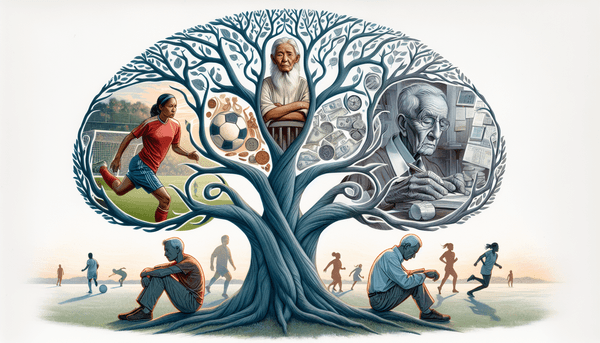Being a Better Partner
Reflecting on 1 Corinthians 13:4-7, we find the quintessential description of love which should permeate all relationships, especially with our partners. To become a better partner, one must strive to be patient, kind, and void of envy or pride. This scripture teaches us that love does not boast, dishonor others, or keep a record of wrongs. In a partnership, embodying these qualities means maintaining open lines of communication, showing respect for each other's individuality, and seeking mutual understanding. When we choose to 'be completely humble and gentle; be patient, bearing with one another in love' (Ephesians 4:2), we foster a relationship where both partners can grow and 'A friend loves at all times' (Proverbs 17:17), creating a bond that is resilient and nurturing.
Finding Motivation
Finding motivation can be challenging, yet we're reminded that with God, all things are possible (Philippians 4:13). When motivation wanes, one can find solace and strength in divine support, asking God to rejuvenate our spirit 'so that we may run with perseverance the race marked out for us' (Hebrews 12:1-2). In our spiritual journey, just as in our quest for love and companionship, we are called to place our trust in the Lord's plan (Proverbs 3:5-6), seeking guidance that aligns with God's will. By surrounding ourselves with positive influences and engaging in activities that reflect our passions and bring joy, we can navigate life's challenges. As we lean on God to renew our strength (Isaiah 40:31), we can overcome life's hurdles, not by our might, but by the presence and power of God who is our source of strength and motivation.
Dealing with Greed and Seeking Forgiveness
Confronting personal flaws such as greed necessitates a humble acknowledgement of one's actions and a desire for change. The Bible encourages us to 'confess our sins, for He is faithful and just to forgive us our sins' (1 John 1:9). True repentance involves not only seeking God's forgiveness but also reconciling with those we have wronged. It is a transformative process that leads to 'Godly sorrow [which] brings repentance that leads to salvation' (2 Corinthians 7:10). By resisting 'all kinds of greed' (Luke 12:15) and embracing a spirit of generosity and contentment, we align ourselves with God's heart, allowing His mercy to shape our actions and interactions.
FAQ
Q: How do I pray?
A: When you pray, speak to God openly, sharing your thoughts, concerns, and gratitude. Use the Lord's Prayer in Matthew 6:9-13 as a model, but personalize your communication to reflect your own experiences and emotions.
Q: How could I be a better partner?
A: To be a better partner, practice the qualities of love outlined in 1 Corinthians 13:4-5, such as patience, kindness, and forgiveness. Focus on open communication, mutual respect, and supporting each other's growth.
Q: What if I don't have good motivation?
A: Seek divine support in prayer and surround yourself with positive influences. Remember that God renews your strength and that 'I can do all things through Christ who strengthens me' (Philippians 4:13).
Q: The heart of the wise seeks understanding; how do I initiate my quest?
A: Start by praying for wisdom, as James 1:5 suggests, and immerse yourself in the study of God's Word. Be open to learning from various experiences and the insights of others.






